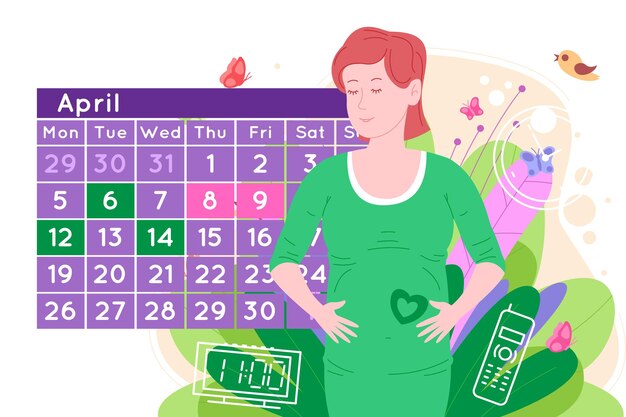Practicing mindfulness or meditation

The menstrual cycle is more than a monthly physical event — it is intricately linked to our emotional and mental health. Many women experience shifts in mood, energy, focus, and even self-esteem across different phases of the cycle. Understanding and embracing this natural rhythm can help us feel more in control, compassionate toward ourselves, and empowered. One of the most effective ways to cultivate this awareness is through mindfulness and meditation.
The Connection Between Mindfulness and the Menstrual Cycle
Mindfulness is the practice of being present in the moment, without judgment. When applied to the menstrual cycle, it helps you observe patterns, thoughts, emotions, and physical sensations with more clarity and kindness. Over time, mindfulness creates a bridge between your body and mind — allowing you to track not just when your period is coming, but how each phase of your cycle affects your wellbeing.
Instead of dreading premenstrual days or feeling confused by emotional ups and downs, mindfulness offers a grounding space to accept, understand, and respond to these changes with care.
The Four Phases and Mindful Awareness
Let’s break down how mindfulness can support you during each menstrual phase:
1. Menstrual Phase (Days 1–5): Rest and Reflection
Your body is shedding the uterine lining, and energy is typically at its lowest.
🧘♀️ Mindfulness Tip: Practice gentle breathwork or body scans. Allow rest without guilt. Journaling during this time can bring clarity about emotions or decisions.
2. Follicular Phase (Days 6–13): Rebirth and Motivation
Estrogen rises, and with it, energy and mental clarity return.
🧘♀️ Mindfulness Tip: Engage in movement meditations like yoga or walking. Use this time to set intentions or begin new projects. Stay mindful of overcommitting.
3. Ovulatory Phase (Days 14–16): Peak Confidence and Connection
Your body prepares for possible pregnancy, and many feel most confident and social.
🧘♀️ Mindfulness Tip: Try loving-kindness meditation. Be mindful of interactions and practice gratitude. Tune into how your communication style might shift.
4. Luteal Phase (Days 17–28): Sensitivity and Intuition
Progesterone rises, leading to PMS symptoms for many. You may feel more introspective or emotionally reactive.
🧘♀️ Mindfulness Tip: Accept emotional waves without judgment. Use grounding meditations. Reflect instead of reacting. This is a great time for emotional journaling or creating art.
Benefits of Mindfulness During the Menstrual Cycle
-
Improved emotional regulation: Reduces anxiety, mood swings, and irritability.
-
Body awareness: Helps notice early signs of PMS or hormonal shifts.
-
Better cycle tracking: Mindfulness journaling or meditation increases self-awareness about cycle patterns.
-
Increased self-compassion: Allows you to treat yourself with kindness during challenging days.
Simple Mindfulness Practices to Start Today
-
Daily check-in (2–5 minutes): Sit quietly, place a hand on your belly, and ask: “How do I feel today—physically, emotionally, mentally?”
-
Cycle journaling: Write a sentence each day about your mood, energy, and thoughts. Patterns will emerge.
-
Meditation apps: Use guided meditations tailored for women’s health or cycle syncing.
-
Breathing exercises: Especially helpful during moments of PMS or anxiety.
Final Thoughts
Your menstrual cycle is a powerful map of your body’s intelligence. By practicing mindfulness or meditation, you develop a deeper understanding of yourself and build a harmonious relationship with your hormonal changes. Whether you're trying to manage emotional swings, feel more productive, or simply stay balanced — mindfulness is a gentle and effective companion on your journey.
Remember: You are not "too emotional" or "unpredictable" — you are cyclical, intuitive, and deeply connected to nature. Honor that connection with presence and compassion.
Related Articles

Managing infections or discomfort

Benefits of walking daily

Gentle stretches or yoga poses

Second Trimester (Weeks 13-26)

Baby development at 1 week

Preventing rashes or infections

Mental Health During Pregnancy: Taking Care of Your Emotional Well-Being

Avoiding harsh products during breakouts